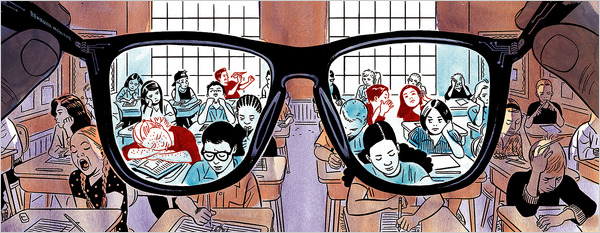Topic: customization
No more girls versus boys
Wednesday, August 11th, 2010“Men and women, shoulder-to-shoulder, will work together to make this a better world,” remarked Justice Ruth Bader Ginsburg recently at the Aspen Ideas Festival. “We will get there.”
While the festival addressed persistent gender disparity throughout our society, blogger Adriana Gardella reported that “speakers consistently rejected the notion … that women succeed at the expense of men.”
This hit home for me as an educator. Recently, as girls have closed the achievement gap in terms of math scores on standardized tests, some parents have asked, what about boys? If boys no longer outscore girls in math and science, and score behind girls in reading, will they be left behind in an educational system that seems to play to girls’ strengths? Or will men just become “obsolete” (as recently proposed by the Atlantic Monthly)?
I believe it’s not a zero sum game. When one group improves, it doesn’t have to be at the expense of anyone else. We can pull each other up.
Parents are concerned that boys—who generally need to move more and are usually more interested in math and science than reading—are being given the shaft in classrooms that, purposefully or not, promote values traditionally perceived as feminine, such as being obedient or sitting still and working quietly.
But a classroom that only encourages that kind of behavior isn’t good for girls either. Just because it’s easy for girls to sit still and work quietly doesn’t mean that they should all the time. Both boys and girls need to develop their own ideas and voices, learn to assert themselves, use their bodies, and make noise. And all kids, male or female, need to become both passionate readers and enthusiastic problem-solvers.
We all bring different strengths and weaknesses to the table—not just as gender groups, but as individuals. For example, my neighbor recently declared to me that “yoga is good for girls.” He felt that because he wasn’t flexible, yoga wasn’t for him.
I tried to explain that yoga is about developing both strength and flexibility. Many men are naturally more stable—strength comes easily to them, but they need to cultivate their flexibility. But for most women, flexibility comes easily, but they need to cultivate their strength.
To me, yoga is about the balance of opposites—the courage to develop what doesn’t come easily as well as the guts to use and celebrate what does.
I think it’s the same thing with education. It’s not about girls versus boys, or rewarding what comes more easily to one group over the other.
The best education will help each individual tap into the core of who they are and become the most radiant version of themselves possible. True education helps us both to trust what’s inside—to stand up for our own ideas and our own vision—and to learn to do things that don’t come easily.
Comment on this post (3)








